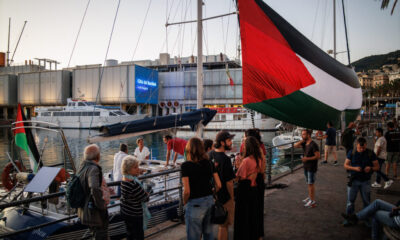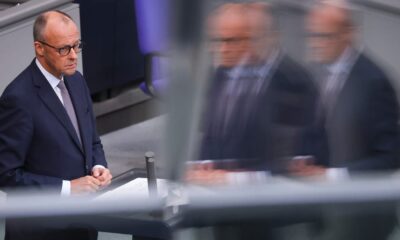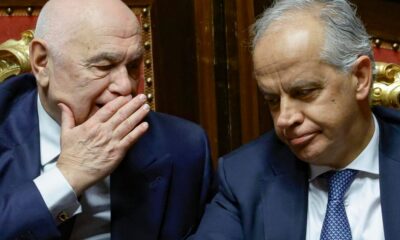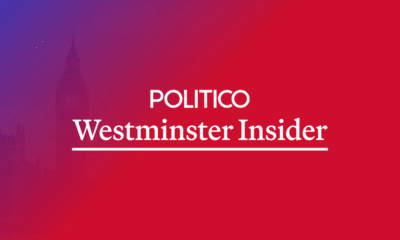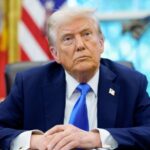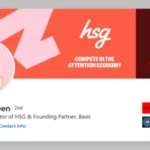EU Affairs
Deleting texts to save space, Ursula? ‘It’s not the 1990s.’

Read more on post.
“A text message barely takes any room on a modern phone. Like, you would need to get hundreds of thousands of text messages for it to actually make a difference,” Belgian ethical hacker Inti De Ceukelaire said, calling the Commission’s explanation “a non-argument.”
“Why doesn’t she change to a phone with more storage?” asked Francisco Jeronimo, vice president for data and analytics at technology market research firm IDC in Europe.
Ursula von der Leyen is in the hot seat over a text message she received from French President Emmanuel Macron last year urging her to block the EU-Mercosur trade deal, as first reported by POLITICO. The message was subsequently deleted from von der Leyen’s phone, the Commission said in response to an access to documents request filed by Follow the Money reporter Alexander Fanta.
On Wednesday Commission spokesperson Olof Gill told reporters: “The messages are auto-deleted after a while, just for space reasons.” He jokingly added: “Otherwise, the phone would go on fire.”
Another spokesperson, Balazs Ujvari, added it also helped prevent security breaches, but doubled down on the idea that it was a means of saving space: “On the one hand, it reduces the risk of leaks and security breaches, which is of course an important factor … And also, it’s a question of space on the phone, so, effective use of a mobile device.”
To be sure, many Europeans have struggled with overloaded phone storage. But for most it’s a matter of home videos and reams of family pictures that are clogging devices.
EU Affairs
Farage takes on the Bank of England with blast against QE legacy
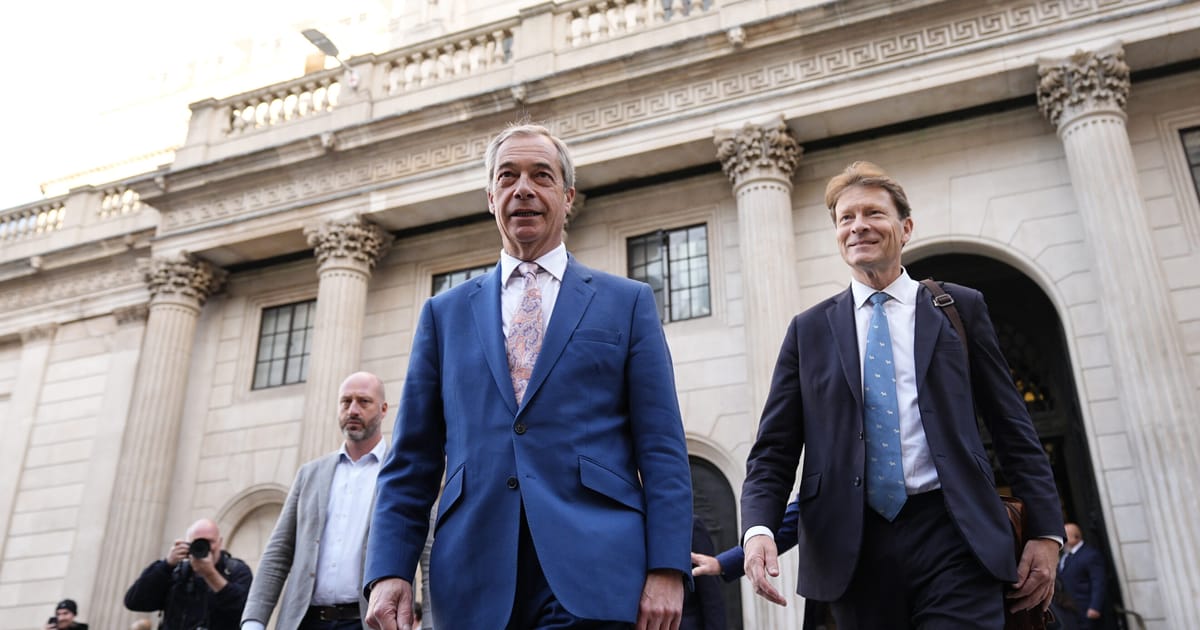
Read more on post.
The Reform duo also urged the Bank to stop the active selling of the gilts it bought during the QE period, something that several analysts and investors have argued is putting unnecessary upward pressure on the government’s borrowing costs. Tice told POLITICO on Thursday that stopping gilt sales alone could have taken around £1.5 billion off the government’s bill for debt interest this year. The Bank argues that the taxpayer wouldn’t end up paying any less in the long run, though.
Reform is now seeking a full parliamentary debate on ‘quantitative tightening’, or QT, when MPs return from their recess, something he may get in the second half of next month if the Leader of the House of Commons is sympathetic. “It’s much more powerful as a debate in government time, as opposed to a backbench business debate,” Tice argued.
The political argument is simple. “If Parliament via the Chancellor of the Exchequer gave a different steer to the Bank of England, this could significantly reduce the need for tax rises at the Budget,” Tice said in a statement released after the meeting.
Reeves can ill afford to ignore anything that will raise money at a time when sluggish growth and productivity and constant increases in spending have made it all but impossible for her to stick to her own self-defined fiscal rule. And left-leaning think-tanks such as the Institute for Public Policy Research and Positive Money have already come to much the same conclusions.
Yet Reform’s high-volume handling of a meeting that the Bank styled as a routine meeting with elected politicians represents something of a break with convention. Since Tony Blair’s government granted the Bank independence in 1997, party leaders have refrained from appearing to give instruction to the Bank on how to conduct monetary policy.
Tice, however, in comments to POLITICO, argued that the issue is essentially a fiscal one, since the losses incurred by the Bank through QT have to be picked up by the taxpayer. “Parliament has failed in its duty to give the Bank more direction and support in this area,” he said. “It’s left the Bank to make its own decision and sort of … swing in the wind.”
EU Affairs
China offers unlikely glimmer of hope in fight against plastic pollution

Read more on post.
While China is the world’s top consumer and producer of plastic, the country has also ushered in several restrictions on the production, sale and consumption of single-use plastics in a bid to stem a national pollution crisis. This has made it more aligned with high-ambition countries than some other major plastic producers.
Observers also see the country looking to expand its global influence via the U.N. — especially in the wake of the U.S. retreat from multilateralism. “We should firmly safeguard the status and authority of the U.N., and ensure its irreplaceable, key role in global governance,” President Xi Jinping said in a speech at a meeting of Asian leaders near Beijing on Sept. 1, attended by Russian President Vladimir Putin and Indian Prime Minister Narendra Modi.
“My sense is that, of course, they’re also seeing that space opening, generally around environment,” said David Azoulay of the Center for International Environmental Law. “And the U.S. retreating creates a vacuum that China will probably want to fill in their own way.”
That could work out well for high-ambition countries. China is an “important partner for the EU” in the talks, European Environment Commissioner Jessika Roswall told POLITICO during the Geneva negotiations.
“Our strategy since Busan has always been to break China away from Saudi [Arabia] and the U.S.,” said one negotiator from a country within the High Ambition Coalition, granted anonymity to discuss closed-door talks.
With China on board, they added, the assumption is that other major players including Russia and India, as well as Southeast Asian countries, will “become more comfortable” with a comprehensive plastic treaty.
EU Affairs
Dockworkers from across Europe gather to plan trade squeeze on Israel
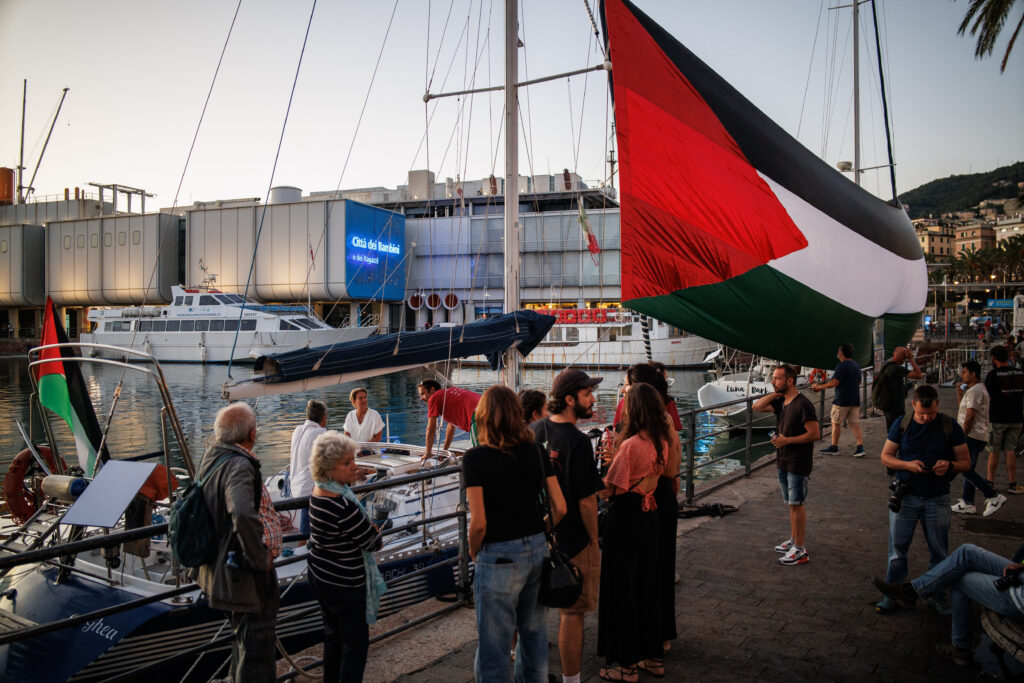
Read more on post.
Initially that means focusing on how to react to the Global Sumud Flotilla — a humanitarian aid convoy involving climate activist Greta Thunberg that was targeted by Israeli drones in international waters south of Crete earlier this week. Talks will cover blocking military exports to Israel, but the debate could widen, with moves that may threaten Israel’s trade ties with the EU.
“Looking ahead, it could mean coordinated industrial action in European ports against not just weapons, but all goods directed to Israel,” said Staccioli.
The initiative began as an effort to coordinate Mediterranean dockworkers with the aim of making ports “arms-free zones,” he explained. The urgency grew over the summer as ships loaded with weapons and military equipment bound for Israel docked in Piraeus in Greece, Marseille in France and in Genoa.
“What started as a plan for a common front in the autumn — to step up pressure and disrupt arms loading and unloading in European ports — has been reshaped by recent events,” he said.
The turning point, he said, was the Global Sumud Flotilla — the fourth and largest maritime challenge to Israel’s blockade of Gaza, involving 20 vessels and more than 300 crew. The mission set sail at the beginning of September as Gaza faces a worsening humanitarian crisis, with U.N. agencies warning of famine across the enclave.
The recent attacks against it prompted Italy to dispatch a warship to protect its citizens on board, quickly followed by Spain. Still, on Thursday Italy’s Defense Minister Guido Crosetto warned the flotilla not to attempt to force Israel’s Gaza blockade, stressing that Italian ships “will remain in international waters” and will not act as escorts.
-
Culture3 days ago
Taylor Swift’s new cinema outing generates more than €12million in just 24 hours
-
Politics3 days ago
European Parliament snubs Orbán with vote to shield Italian MEP from Hungarian arrest
-
Health3 days ago
EU renews support for WHO’s Universal Health Coverage Partnership
-
Culture2 weeks ago
Life, loss, fame & family – the IFI Documentary Festival in focus
-
Culture3 days ago
Twilight at 20: the many afterlives of Stephenie Meyer’s vampires
-
Environment6 days ago
Key oceans treaty crosses threshold to come into force
-
Culture2 months ago
Fatal, flashy and indecent – the movies of Adrian Lyne revisited
-
Culture1 week ago
Farewell, Sundance – how Robert Redford changed cinema forever






